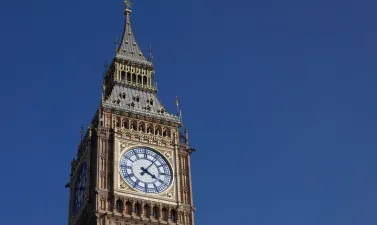Home / Latest News And Updates / Could there be changes to the High Income Child Benefit Charge?
20 Feb 2024
The High Income Child Benefit Charge (HICBC) is seen by some (many!) as unfair, punitive and cumbersome. The Chancellor is facing pressure to address this issue in his Budget speech on 6 March 2024. There is criticism of the HICBC from across the political spectrum, so it is possible that he could increase the threshold at which the charge is paid, or even scrap it altogether.
If changes to the HICBC are announced in the Budget, you can be sure that the team at 20:20 Innovation will keep you and your clients informed.
For now, let’s look at how the HICBC works currently. If you are an accountant in practice or industry and would like more information about becoming a 20:20 Innovation member, why not book a free 30-minute demo with our team today.
The HICBC is paid by those who claim Child Benefit and have income in a tax year in excess of £50,000.
The simplest example of this is a single parent with income over £50,000.
For those in couples (regardless of whether they are married or living together as partners), if one partner claims Child Benefit, if either of the individuals has income in excess of £50,000, it is the partner with the higher income that will be liable for the HICBC.

Consider two fictional couples who claim Child Benefit:
Both couples’ households earn £80,000. Tom and Barbara are not liable for HICBC, but Margot has to pay the full charge.
It’s also considered to be punitive towards single parents who are likely to be disproportionately affected by the charge.
These are just some of the reasons why the HICBC is unpopular, not to mention the complexity of identifying whether HICBC applies, who needs to pay it and then considering the implications for the all-important National Insurance credits!

If a person has to pay the HICBC, the amount will be a percentage of the Child Benefit that they or their partner was entitled to receive during a tax year. The percentage is determined by the person’s Adjusted Net Income (ANI). For each full £100 by which their ANI exceeds the £50,000 HICBC threshold, 1% of the Child Benefit becomes payable. This means that when their ANI reaches £60,000, 100% of the Child Benefit is payable.
ANI is a person’s total taxable income, less certain tax reliefs such as trading losses (from self employment), Gift Aid donations and pension contributions.
Anyone who is required to pay the HICBC must submit a self assessment tax return, even if they are employed. The charge is payable by the normal self assessment payment date: 31 January following the end of the tax year to which the HICBC relates. In July 2023 the Government announced that it plans to allow HICBC to be collected via an individual’s tax code, without the need to register for self assessment. The fact that we have not heard any more about this leads us to anticipate further announcements on Budget day.
It might be tempting for those who are caught by the HICBC to simply not register for Child Benefit, but it should be remembered that registering for Child Benefit will ensure that the claimant accrues National Insurance credit for future state benefit entitlement. This is particularly useful if the claimant does not work. Registering for Child Benefit also means that the child is automatically allocated a National Insurance Number when they turn 16.
It is possible to make a Child Benefit claim but choose not to receive the payments. This is known as ‘opting out’ and will mean that the HICBC won’t have to be paid.

It seems unlikely that HICBC will be scrapped; if that were to happen, countless parents would be looking to have their Child Benefit payments reinstated and Government systems could become overloaded. If HICBC is reformed, there will most likely be an uplift to the thresholds. Whatever happens, we’ll be analysing the documents published on Budget Day so we can make sure you’re kept informed of the changes.
If you would like more information about joining 20:20 Innovation why not book a free 30-minute demo with our team today or call us on +44 (0) 121 314 2020.

07 Feb 2024
This article looks at the prospect of up to three Finance Bill announcements in 2024 and what that might mean ...

10 Jan 2024
Scottish and Welsh Governments have power to set some taxes. Read on for news on the devolved taxes and other ...

09 Jan 2024
HM Treasury has set a Spring Budget date of 6 March 2024 - one of many key fiscal dates in the early part of t...